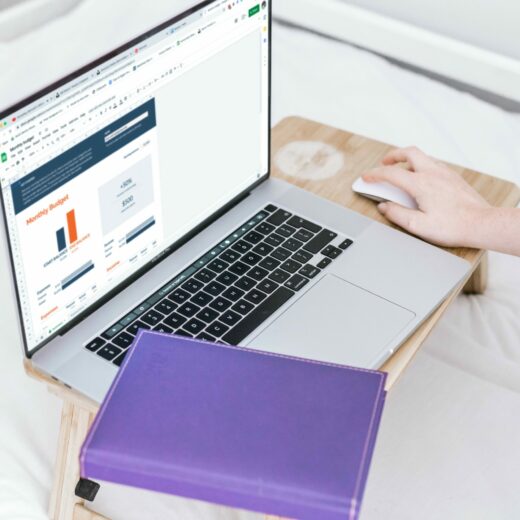News
Sign Up to receive our monthly newsletters.
LATEST NEWS
Keep Your Finances on Track
With your finances, it’s a good idea to check in on your progress periodically to see if any adjustments to your budget or changes in your habits are necessary. Even if you’ve set your budget for the year, you may learn a new strategy or have a priority come up suddenly that causes you to shift your thinking. Here are a few ways to look at your habits & keep your finances on track.
Review Your Budget Quarterly
Now that you’re a few months into the year, take time to review whether you’ve kept your budget on track for the year. What’s worked well & what hasn’t? Do you need to make adjustments? Are you spending more than you intended? Did you have any unexpected expenses that require a shift in your strategy?
Recheck your goals to see how you’re progressing toward them. Do you have as much money in your emergency savings as you want? Is enough money going towards your retirement savings accounts as needed? Are you able to keep your finances on track with your current budget?
Identify & Remove Any Unnecessary Expenses
With so many options for subscription services, chances are you’re paying for things you no longer use. Look at your bank & credit card statements to identify regular charges for items that aren’t being used. Maybe you signed up for a streaming service you never watch, or a digital publication you don’t read. Now’s the time to cancel it.
Be honest with yourself about your subscriptions. If you’ve had a monthly gym membership for years & only go once or twice a month, it probably isn’t worth the monthly fee. However, If you make regular use of it, however, then it’s worthwhile keeping.
Keep only recurring expenses you use, no matter how little they cost. While individually they may seem like small amounts, those regular expenses add up over time. Set up a separate account for extra spending.
If you have one account that your regular expenses & your extra expenses come out of, it’s easy to lose track of how much money is in that account. Keep separate accounts, one for your regular expenses & one for those that are discretionary.
If you like, you can have more bank accounts to further keep track of your expenses, but at the very least have two separate accounts for your spending. When thinking about an extra account, don’t forget to look at the monthly & transaction fees associated with the account.
Use Reminders to Keep Track Of Due Dates
Technology has made it much easier to keep track of looming payment deadlines. Make a list of your bills & their payment dates. Set up a way to keep track of & alert you to upcoming deadlines. This can be a calendar notification, a smartphone app, an agenda or even a wall calendar.
Look at the app every so often so you can see your payments schedule & determine if you need to shift any payment due dates.
Clean Up Your Paperwork
You don’t need to keep all your receipts for decades. Some you can get rid of right away, however, you must keep all tax receipts claimed for 6 years from the end of the last tax year they relate to. Once that period has passed, shred them & get rid of them.
Where possible, sign up for online billing & receipts, so you don’t have to worry about paper cluttering up your office.
Final Thoughts
It’s a great idea to spring clean your budget & spending to ensure you keep your finances on track & aren’t spending money unnecessarily. If you have questions about your finances, we have answers.
Reach out today to find out more about how we can help you.
Photo by Sincerely Media on Unsplash











